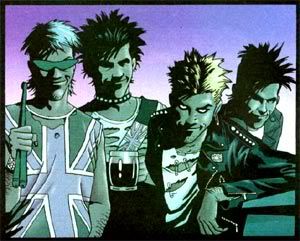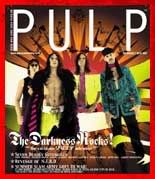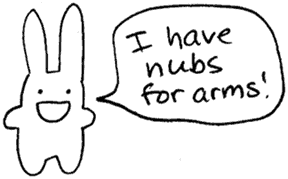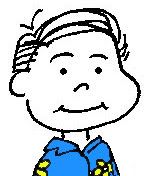You'd think that a play featuring ten different sexual pairings, full-frontal nudity, and a script by David Hare would be more interesting (especially since I sat down to it after a couple of glasses of wine, which tends to make me kinder and somewhat more receptive to anything to do with sex--which has gotten me into trouble more times than we'll talk about. Hi, mom!) But the six-week rehearsal period for this production really wasn't enough to spark the essential sexual tension between the two leads, and the whole thing turned out to be as fun and sexy as an itchy wet blanket on a cold night. A longer rehearsal period would really have helped, if only to get Jamie Wilson in shape for the role. As it was, he was this black hole of unsexiness, draining all the sexiness out of the room and preventing any from escaping. Anybody who sees the play may never get laid again! It was that unsexy. (Okay, so I'm exaggerating. There were a couple of reporters I knew who sat in the front row and who looked like they were going to get laid--by each other--pretty soon.)
I will, however, direct the music fan's attention to the soundtrack used in this production. I perked up when, during the short transition between one act and the next, I realized that, Hey! They're using OPM! Not the usual Ogie Alcasid/ Nina/ Regine Velasquez/ Sex Bomb Dancers stuff (although that last one might've worked), but tracks by Boldstar ("Acoustic Prone," "Betamax"), Twisted Halo ("Irene," "Miron,") Squid9 ("Insincerely," "Sad Place"), Ciudad ("The Herb"), and Boy Elroy ("Conversations"). It was good to hear these songs in a surprising setting, and some of the songs actually worked very well in the interstices, although some more time and thought might've greatly improved the interplay between the soundtrack and the play's text.
This reminds me of a three-act play that I wrote in college; I don't remember what potentially shameful lines I wrote in that piece of juvenilia, so thankfully the script's now lost to the ages. I'd written it as a The Big Chill or Peter's Friends type of thing, where a couple of old friends meet at a bar to discuss what to do with their dead barkada's ashes. I'd written in a video jukebox in the corner of the scene to play current songs that were supposed to add some dimension to the dialogue--although, for the life of me, I do not remember any of the tracks I'd picked out.
Picked well, the music can be as memorable as anything any of the characters can say. This is something that advertising commercial directors know very well: look at this brilliant VW ad that uses ELO's "Mr. Blue Sky." There was also, somewhere in the mid-90s, another VW ad that made me want to buy both a VW Polo convertible AND a Moonpools & Caterpillars CD to play while cruising down some unnamed seaside highway. It wasn't until months later, after I'd come back from my Stateside vacation and tuned in to NU107 to hear Moonpools' single "Here" that I learned what that song was, but it had stuck so well that, even riding in the passenger seat in my dad's Lancer, I felt the wind in my hair.
 Volkswagen certainly doesn't have the monopoly on good commercial soundtracks, although they've had more than their fair share of good picks (one more memorable ad features Nick Drake's "Pink Moon"). Being evocative in a way that's suitable for commercials is something that's also worked to Moby's advantage--Play, if you recall, is the first album to have the distinction of having all of its tracks licensed for use in ads. Is that a good thing or a bad thing? When "Porcelain" comes on, my world suddenly turns green-tinted and well-edited, and suddenly my hair's perfect and the lighting's perfect, and I'm no one but a perfect driver driving a perfect car in a perfect world for the length of that track. Here we can decry how much our very lives have been overcommercialized and recast in the cold cathode glow of TV--in fact, I think that might've been the point of my teenage play--but let's forget that for a while and think about how much pleasure we get, if a little guiltily, from these movie moments. There's little else that has the power of music to evoke a tangle of thoughts, emotions, and desires. So it's used to sell us stuff. Most of the times we know how to dose ourselves with auditory medication, letting the songs play in our heads that will transport us to a world with better lighting, where everything works out very well during the space of a song.
Volkswagen certainly doesn't have the monopoly on good commercial soundtracks, although they've had more than their fair share of good picks (one more memorable ad features Nick Drake's "Pink Moon"). Being evocative in a way that's suitable for commercials is something that's also worked to Moby's advantage--Play, if you recall, is the first album to have the distinction of having all of its tracks licensed for use in ads. Is that a good thing or a bad thing? When "Porcelain" comes on, my world suddenly turns green-tinted and well-edited, and suddenly my hair's perfect and the lighting's perfect, and I'm no one but a perfect driver driving a perfect car in a perfect world for the length of that track. Here we can decry how much our very lives have been overcommercialized and recast in the cold cathode glow of TV--in fact, I think that might've been the point of my teenage play--but let's forget that for a while and think about how much pleasure we get, if a little guiltily, from these movie moments. There's little else that has the power of music to evoke a tangle of thoughts, emotions, and desires. So it's used to sell us stuff. Most of the times we know how to dose ourselves with auditory medication, letting the songs play in our heads that will transport us to a world with better lighting, where everything works out very well during the space of a song.




 Of course, looking back at two years of working for PULP, I wonder what the hell that adds up to anyway. I had the strange notion that over time, I could help make it into the kind of magazine that I would have bought on a regular basis even if I didn't write for it. By that standard, I failed. When the editor-in-chief himself doesn't seem to care whether or not the writing in his magazine is any good, it's pretty hard to come up with a publication to be proud of. Of course, the Reviews section is always solid (hi, Kristine), and I'm pretty happy with most of the stuff I wrote over those two years, but overall, PULP is still... well, PULP.
Of course, looking back at two years of working for PULP, I wonder what the hell that adds up to anyway. I had the strange notion that over time, I could help make it into the kind of magazine that I would have bought on a regular basis even if I didn't write for it. By that standard, I failed. When the editor-in-chief himself doesn't seem to care whether or not the writing in his magazine is any good, it's pretty hard to come up with a publication to be proud of. Of course, the Reviews section is always solid (hi, Kristine), and I'm pretty happy with most of the stuff I wrote over those two years, but overall, PULP is still... well, PULP.


 Police fear for the safety of MANIC STREET PREACHERS guitarist Richey Edwards, who has not been seen since February 1. The whereabouts of Edwards, who has a long history of dysfunctional behaviour, were still unknown as NME went to press on Monday (February 20).
Police fear for the safety of MANIC STREET PREACHERS guitarist Richey Edwards, who has not been seen since February 1. The whereabouts of Edwards, who has a long history of dysfunctional behaviour, were still unknown as NME went to press on Monday (February 20).



